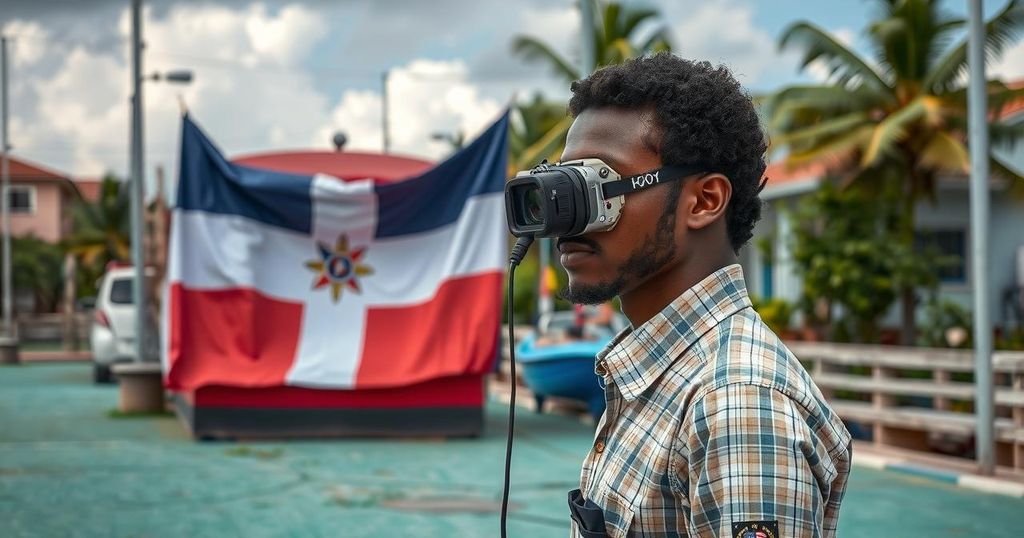Church Organizations Protest Dominican Government’s Deportation Plan for Haitians

The Dominican Republic’s government, led by President Luis Abinader, has initiated a controversial policy to deport 10,000 undocumented Haitian migrants weekly, eliciting protests from church organizations and human rights advocates. This decision exacerbates the already severe humanitarian crisis for Haitians in the country, raising concerns over increased discrimination and calls for justice, dialogue, and human rights protection.
Church organizations in the Dominican Republic have vehemently opposed the government’s recent decision to deport 10,000 undocumented Haitian refugees weekly, a policy announced by President Luis Abinader on October 2. This action has drawn significant criticism as it exacerbates the already dire living conditions for countless Haitians in the country. Catholic activists, operating along both sides of the border, argue that the government’s approach only amplifies the existing humanitarian crisis. Reports indicate that over 700,000 Haitians have fled their homes in Haiti due to deteriorating conditions, with an estimated 500,000 seeking refuge in the Dominican Republic.
Catholic leaders assert that this drastic measure masquerades as a security initiative aimed at protecting Dominican citizens. However, they emphasize that no government has the right to mistreat foreigners. Father Agler Cherizier passionately stated, “The life of each human being is sacred and inviolable. Border problems are solved through meetings and dialogue.” He highlighted the growing prejudice against Haitians, which has intensified with the announcement of the deportation policy.
Sister Eugenia Vásquez, representing Fundación Ascala, confirmed that the anti-Haitian sentiment has escalated since the policy unveiling, severely impacting the lives of Haitian migrants. Furthermore, she asserted that many deported individuals are legally residing in the Dominican Republic but are unable to produce documents due to systemic failures in the bureaucratic process. The CLAMOR Network, representing numerous church organizations, has formally criticized the government’s deportation goals, appealing for a more humane and just approach to treatment of migrants.
In their joint letter, CLAMOR reminded Dominican authorities of their Christian obligation to treat migrants justly and urged a reconsideration of large-scale deportations. They highlighted issues such as bureaucratic corruption in acquiring Dominican identification, which adversely affects access to basic services for many immigrants. Activists contend that the Dominican government only seeks to close its borders entirely to Haitians, a stance reinforced by the recent cessation of visa issuance for Haitian nationals.
Abdias Chancy, a Haitian community leader in the Dominican Republic, expressed concerns regarding the increasing isolation for Haitians, stating, “The government is not issuing visas for Haitians anymore. Despite that, the migrants keep coming through a dangerous route across the mountains.” He detailed the human rights abuses faced by Haitian migrants, including unlawful detainment under dubious circumstances. Chancy emphasized the necessity for migrants to carry identification at all times, highlighting a troubling disregard for the rights of Black individuals in particular, who face indiscriminate detentions without consideration for their legal status.
The situation remains dire for countless Haitian migrants, as they encounter systemic barriers and discrimination within the Dominican Republic. Leaders from both nations’ church organizations continue to advocate for humane treatment and the respect of human rights for all individuals, regardless of their nationality.
The urgency of this issue underlines a call for regional collaboration and humanitarian intervention to address the plight of Haitian refugees effectively. The appeals for justice underscore the need for a responsible and compassionate response from Dominican authorities and the international community in addressing the ongoing crisis affecting Haitians in the region.
The Dominican Republic shares the island of Hispaniola with Haiti, leading to complex migration dynamics influenced by socio-economic conditions and political instability. In recent months, Haiti has experienced a significant humanitarian crisis, prompting many individuals to flee to the Dominican Republic for safety and better living conditions. However, Dominican President Luis Abinader’s administration has responded to this influx with stringent deportation policies, leading to heightened tensions and worsening conditions for Haitian migrants. Activists and church organizations have raised concerns about the treatment of Haitian nationals, emphasizing human rights abuses and the need for a more compassionate approach to immigration and deportation policies.
In conclusion, the Dominican Republic’s decision to repatriate vast numbers of Haitian migrants has drawn considerable criticism from church organizations and human rights advocates. The policy not only exacerbates the challenges faced by Haitian refugees but also reflects a broader issue of discrimination and hostility towards Haitians within the Dominican Republic. Calls for dialogue, fairness, and respect for human rights are essential as the region grapples with the implications of these measures. The situation underscores the necessity for a unified effort to address the humanitarian crisis currently impacting thousands of lives.
Original Source: cruxnow.com







